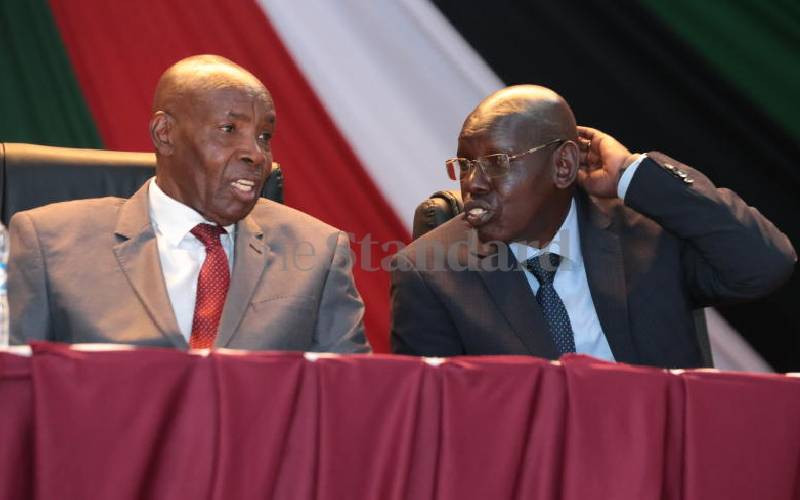A State agency has asked the Government to fund the revival of the railway network from public sources, saying this was the only way to reduce tariffs.
Rift Valley Railways (RVR) Chief Executive Officer Darlan De David said the current programmes to turn around the sector were being financed from expensive private capital, which impacts heavily on the cost of transport for the importers.
"Co-funding from less expensive public sources in the true spirit of public-private partnership would reduce the high cost of private capital that gets reflected in tariffs and speed up the realisation of our common goal of building a robust railway network to boost trade and prosperity in the region," said Mr David.
He said infrastructure improvements being undertaken were entering into the balance sheet of the Government as it is the owner of the railway infrastructure that RVR manages.
The RVR boss was speaking in Mariakani, Kilifi County, during the launch of two high-capacity track maintenance machines that will automate and hasten track restoration.
David said the two machines, the Ballast tamper and Ballast profiler, acquired at a cost of Sh200 million, will significantly improve track stability and restoration.
Deputy President William Ruto has said the Government is considering allowing the use of Genetically Modified Organisms (GMOs) to boost food production as well as maximise farmers' income.
Use of biotechnology, he said, is one of the concepts the Government is contemplating applying to stimulate high growth in the agriculture sector.
Ruto said once adopted, the technology would shield Kenyans against starvation and low incomes.
"We have for a long time discussed this model but implemented very little. It is high time we allow GMOs more so as to ensure our country is food-secure as well as reduce poverty among other economic inequalities," he said.
Addressing a conference on agriculture at the Kenya School of Monetary Studies, Ruto accused scientists and researchers of misleading smallholder farmers on adoption of biotechnology.
"Our local researchers and agriculturalists have been distorting information on biotechnology and thus misinforming farmers. The same has resulted in continued use of traditional farming methods, impacting on production and escalation of agonies such as poverty and underdevelopment," he added.
The DP said a smallholder farmer is currently producing between 15 and 18 bags of maize in one acre compared to a commercial farmer using new technology who is producing between 80 and 90 bags in a similar parcel of land.
Further, the deputy president said use of modern technology would assist in reduction of food costs, which have been a big nightmare for most farmers.
In 2012, the Government formed a task force to look into matters relating to GM foods and safety. The task force concluded the exercise three months ago and presented the report to the Health Cabinet secretary. The report is due for discussion by the Cabinet any time.
Ruto prevailed upon agricultural stakeholders to deeply think and discuss the best model of farming to boost farmers' earnings.
Stay informed. Subscribe to our newsletter
Akinwumi Ayodeji Adesina, the minister for Agriculture in Nigeria, said African governments spend colossal amounts of money every year to import food to feed the growing populations.
 The Standard Group Plc is a
multi-media organization with investments in media platforms spanning newspaper
print operations, television, radio broadcasting, digital and online services. The
Standard Group is recognized as a leading multi-media house in Kenya with a key
influence in matters of national and international interest.
The Standard Group Plc is a
multi-media organization with investments in media platforms spanning newspaper
print operations, television, radio broadcasting, digital and online services. The
Standard Group is recognized as a leading multi-media house in Kenya with a key
influence in matters of national and international interest.
 The Standard Group Plc is a
multi-media organization with investments in media platforms spanning newspaper
print operations, television, radio broadcasting, digital and online services. The
Standard Group is recognized as a leading multi-media house in Kenya with a key
influence in matters of national and international interest.
The Standard Group Plc is a
multi-media organization with investments in media platforms spanning newspaper
print operations, television, radio broadcasting, digital and online services. The
Standard Group is recognized as a leading multi-media house in Kenya with a key
influence in matters of national and international interest.









